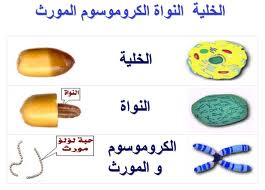
Nature of work
A geneticist is a scientist who specializes in heredity, in particular the mechanism of hereditary transmission. He/she studies inheritance and variation of characteristics in forms of life: performs experiments to determine laws, mechanisms, and environmental factors in origin, transmission, and development of inherited traits. He/she analyzes determinants responsible for specific inherited traits. He/she also devises methods for altering or producing new traits, making use of chemicals, heat, light, or other means. He/she may specialize in particular branch of genetics, such as molecular genetics or population genetics. He/she may perform human genetic counseling or medical genetics. Environment of work
He/she will work as part of a team with others in the molecular genetics service, including medical staff, genetic counselors, clinical scientists and genetic technologists. There is a demand for late evenings and out-of-hours consultative work in addition to shift and weekend work to cover an extended working day, seven days per week. It is possible to work part time following successful completion of training. Career breaks are possible ,but he/she should keep up to date with technological developments during any breaks and would require a period of retraining on returning to work to fulfill state registration requirements. Professional life
A geneticist could work in academics, industry, medicine, or in research. A career in genetics can mean many different jobs. Genetics counselors specialize in providing information as well as support to families who struggle with genetic disorders. They educate, provide referrals, and advocate for the patients. In the field of medicine, he/she could study how genetic diseases are inherited. In agriculture, he/she could employ genetics for the purposes of breeding new crops or even livestock. Biotechnology is also an option to help in the production of pharmaceuticals.Consultant positions are usually awarded to heads of departments or of major sections. It is also possible to gain a senior position by making a significant contribution in the field of genetics.
He/she could also pursue nontraditional careers in journalism or in law as a geneticist. There are job options for trained geneticists in science writing, medical writing, textbook writing, and in law and policy.
Range of typical starting salaries: 45000 SYP
Getting the job
The student of genetics will need to have a solid background in math, physics, chemistry, and biology in high school and college. He/she could major in genetics, which is slightly less common, or could gain a bachelor’s degree of science in biology or another physical science and study genetics at the graduate level. Most graduates enter a doctoral program. Doctoral programs would consist of advanced coursework in genetics as well as research projects.Gaining an undergraduate degree in genetics, if possible, would prepare for many options in the field immediately upon graduation. With this degree, he/she could pursue medical school, pharmacy school, veterinary school, law school (to work as a patent attorney) in addition to the possibility of graduate school for genetics or a related field. Some even enter forensic technology or bioinformatics.
Most researcher or medical geneticist positions require a Ph.D. in a specialized field of genetics, or a medical degree. However, he/she could become a counselor with a master’s degree, or work as a genetics lab technician with a bachelor’s degree in genetics of another biological science
Skills
Candidates need to show evidence of the following:- laboratory skills and the ability to plan and do research;
- strong problem-solving skills;
- an analytical skills;
- excellent oral and written communication skills;
- the ability to manage a laboratory project and liaise with a wide variety of technical colleagues;
- the ability to work effectively as part of a team;
- good IT skills, as most laboratories are highly computerized.
Sources and references
If you need any further information on what is included in this file, you can visit the following websites: www.genetics.org.uk, Genetics Society Website
www.plosgenetics.org, An open-access journal that reflects the full breadth and interdisciplinary nature of genetics
Arab Standard Classification of Occupations, 2008, Ed. Arab Labor Organization.
